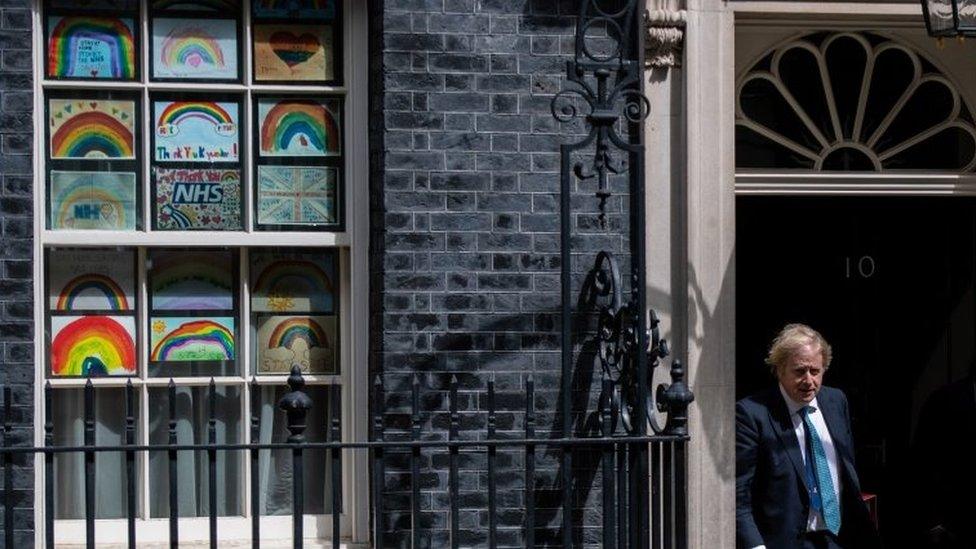Coronavirus: A government under great strain
- Published

The exercise of power is rarely perfect. But this crisis has pushed governments everywhere to their limits.
The emergency here has demanded that the state extend its tentacles almost everywhere - managing the health crisis, propping up multiple industries, supporting the wages of nearly half of the working population and issuing instructions to us all on the way to live our lives.
The irony?
Despite the longer and longer list of tasks the government is carrying out, the number of people calling the shots is tiny.
One cabinet member told me: "Morale is difficult - there are a lot of people just not involved in making decisions."
Another admitted some feel "excluded" - the prime minister, and only a handful of others calling the shots. A senior official even suggested "more than half the Cabinet have no clue what's going on".
In practice, it's common for choices be dominated by a much smaller clutch of people - and in an emergency, one member told me, "you just can't make decisions fast by committee".
But there are nerves in some corners of Whitehall about the distance between the inner and outer Cabinet - ministers not in the inner loop have to defend decisions they are not playing a full part in making. The real physical distance doesn't help either - some stuck in their spare rooms staring at screens rather than arguing the toss in the cabinet room.
And however the decisions are actually being made, the government is still scrambling, two months in, to fix problems that were there from the start: grappling with care homes, providing enough testing, and enough protective gear.
Some of that, the UK has in common with other governments around the world.
But insiders identify the patchwork of structures that govern health and social care too.
"It's a mess," says one minister. ''The system simply wasn't ready to deal with what we have got," says a senior official.
There's now an obvious urge in Number 10 to change in order to cope, bringing in more outside experts, with government documents this week arguing for a "rapid re-engineering of government's structures".
Others caution against making change right in the middle of a crisis, but it seems clear the current system designed for peacetime is being stretched like never before.
Despite the internal struggles, and a sense sometimes the government is just overwhelmed by the challenge, levels of public support have been historically high.
As the second phase of the crisis begins, that may well start to change - multiple ministers admit the practical challenge of a long journey to a new normal, and the political challenge of growing hardship leading, inevitably, to a much more politically turbulent time.
The emergence of an opposition leader who a Conservative source joked was "designed for this moment", creates more challenge too.
And own goals, like the prime minister addressing the country on Sunday night, without the government able also to answer the public's immediate questions, don't help.
Problems with message matter, but they are often a sign of deeper issues inside.
This is still a government with a majority of 80, a government that has, compared to normal life in Whitehall, moved rapidly and comprehensively, to answer the calls of a crisis.
But it is also a government under great strain, trying to keep up with a situation that its structures were never designed to handle, ministers contemplating a political situation that is likely to only become more testing for them.


SCHOOLS: When will children be returning?
EXERCISE: What are the guidelines on getting out?
THE R NUMBER: What it means and why it matters
AIR TRAVELLERS: The new quarantine rules
LOOK-UP TOOL: How many cases in your area?

